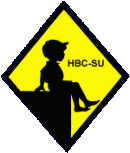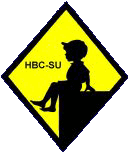
Figure 1.--


Figure 1.-- |
We have begun to acquire some information about the experiences of foreign children in German schools and the experiences of German children in foreign schools. This is quite an extensive topic and is it has varied greatly over time because of the substantial political changes that have occurred in Germany during the 19th and 20th century. Our information is still limited, but we hope German readers will add to our understanding of this subject. The German Empire (1871-1918) had substantial ethnic minorities. The largest were the Poles in eastern areas of the Empire. After World War I (1914-18), substantial numbers of Germand found themselves in foreign countries, especially in Poland and Czechoslovakia. The NAZI era brought substantial changes not only in Germany, but with NAZI expansion in neighboring countries as well. The NAZI conquests brought large numbers of foreign children within the boundaries of the Reich. After World War II, large numbers of Germans fleed or were driven from neigboring countries. Many of these Germans came from families thatb had little or no contact with Germnany for centuries and were thus in many ways like foreign immigrants. At the same time, foreign countries built bases in Germany and eventually families came to Germany. As the German economy expanded, foreigners were recruited ti serve as guest workers and they eventually brought families. Many of these guest workers were Turkish. West Germany participated inn exchange programs sending German students abroad and hosting foreign students in Germany. I believe the East Germans offered scholarships to foreign students, but at the university level.
The German Empire had substantial ethnic minorities. The largest were the Poles in eastern areas of the Empire. There were several other ethnic and religious minorities such as the Wends. We are unsure as to the extent that these minorities were allowed to have their own schools with instruction in their language. Wends had to attend German-language scghools and the children were punished for speaking Wendish. [Rinka] I think the Wends were primarily located in Prussia. We are less sure about the Poles and other ethnic minorities. A complivating factor was that under the German Empire, the individual states retained responsibility for education. Thus language policies may have varied from state to state. The Poles in Germany did not have their own schools either where they would have been taught in Polish. They were allowed to have their own clubs and organisations, especially the "Ruhrpoles" in the West of the country, who nevertheless became totally Germanized, except perhaps for their names. [Bade]
After World War I (1914-18), substantial numbers of Germand found themselves in foreign countries, especially in Poland and Czechoslovakia. Smaller numbers of Germans found themselves in France, Lithuania (Memel), and Italy (South Tirol). We know that there were some German-language schools in these countries, except in Italy. As far as we know there were no changes made in German educational policies toward ethnic minorities during the Weimar area. There was a change made in the status of the ethnic minorities. During the Imoerial period, German Poles moved throughout the country and thus there were substantial numbers of Poles living in western Germany. Some ethnic Poles applied for Polish passports, but continued to live in Germany.
The NAZI era brought substantial changes not only in Germany, but with NAZI expansion in neighboring countries as well. NAZI propaganda depicted these Germans as being abused and their rights abused. We have few details at this time. We do know that Germans (Austrians) in Italy did have their language rights restricted. This was one German minoritybthat Hitler never spoke about as it would have meant raising a devisive issue with his colleague Mussolini. The Nuremberg Laws classified Jewish children as foreigners and they were eventually expelled from German schools. Quite a number of German children found themselves as refugeees in foreign ciyntries. The best known are the Kindertransport children. Not all of these children were Jewish. A HBC reader provides us sime informarion about a German friend. The NAZI conquests brought large numbers of foreign children within the boundaries of the Reich. Here policies varied somewhat. Polish children had differening experiences depending on the national-ethnic classification affirded their family. Slovenian children had to begin attending schools taught in German. The same was true of Alsatioan children. An Alsatian boy, Tomi. published a fascinating account of his school experiences.
After World War II, large numbers of Germans fleed or were driven from neigboring countries. Many of these Germans came from families thatb had little or no contact with Germnany for centuries and were thus in many ways like foreign immigrants. We have not yet found any accounts of their exoeriences in German schools. Some Germans to evade procecution fopr war crimes or because of the desperate economic conditions emmigrated from Germany. A reader has provided us some details about his boyhood in Bolivia. Also after the War, foreign countries built military bases in Germany and eventually foreign families came to Germany. Other foreigners lived in Germany as a result of diplomatic, corporate, academic, or religious postings. One reader whose father taught in France attended French schools, but as an American boy remembers a trip to Germany. Some HBC readers have provided some details of their experiences. A British reader who father was in the military rembers his experiences as a British boy in Germany. As the German economy expanded, foreigners were recruited to serve as guest workers and they eventually brought families. Many of these guest workers were Turkish. West Germany participated in exchange programs sending German students abroad and hosting foreign students in Germany. A HBC reader has provided an account of his experiebces as an American exchange student in northern Germany during 1955. We note American exchange students in Germany during the 1960s. German students also went to other countries. We note a German exchange student in the United States (Texas). There were also cultural and athletic exchanges between Germans and foreigners. A British reader has provided us a detailed account as his experiences during a summer British swimming club exchange.
I believe the East Germans offered scholarships to foreign students, but at the university level. There may have been school or Young Pioneer exchanges with the Soviet Union, but I am not sure with other East Bloc countries. After World War II, when the German Democratic Republic was founded under Russian supervision, Wendish schools were opened everywhere in the region. Wendish books were published and streetnames in cities like Cottbus and Bautzen became bi-lingual. [Rinka] I'm not sure why the DDR promoted Wendish culture. A reader writes, "Because the Russians, who occupied East Germany, felt a consanguinity with the Wends, their Slavonic brethren, and they tried to help them preserve their culture after years of oppression". Of course, they also supplied them with communist propaganda.
Most of the Wends lived in Prussia, but there also were some groups in the kingdom of Saxony. The Wends never had a country of their own. I am not aware of any separatist movement, not in history and not now. I believe that they are quite
comfortable being German citizens."
Bade, Klaus J. ed. Deutsche im Ausland. Fremde in Deutschland ("Germans abroad. Foreigners in Germany") (Munich 1992).
Rinka, Erich. Mein Spreewaldbuch (Dresden 1954).
Related Chronolgy Pages in the Boys' Historical Web Site
[Main Chronology Page]
[The 1880s]
[The 1930s]
[The 1940s]
[The 1950s]
[The 1960s]
[The 1970s]
[The 1980s]
Related Style Pages in the Boys' Historical Web Site
[Main school uniform page]
[Main country page]
[Long pants suits]
[Short pants suits]
[Socks]
[Eton suits]
[Jacket and trousers]
[Blazer
[School sandals]
Navigate the Boys' Historical Clothing Web Page
[Introduction]
[Activities]
[Biographies]
[Chronology]
[Clothing styles]
[Countries]
[Bibliographies]
[Contributions]
[FAQs]
[Glossaries]
[Satellite sites]
[Tools]
[Boys' Clothing Home]
